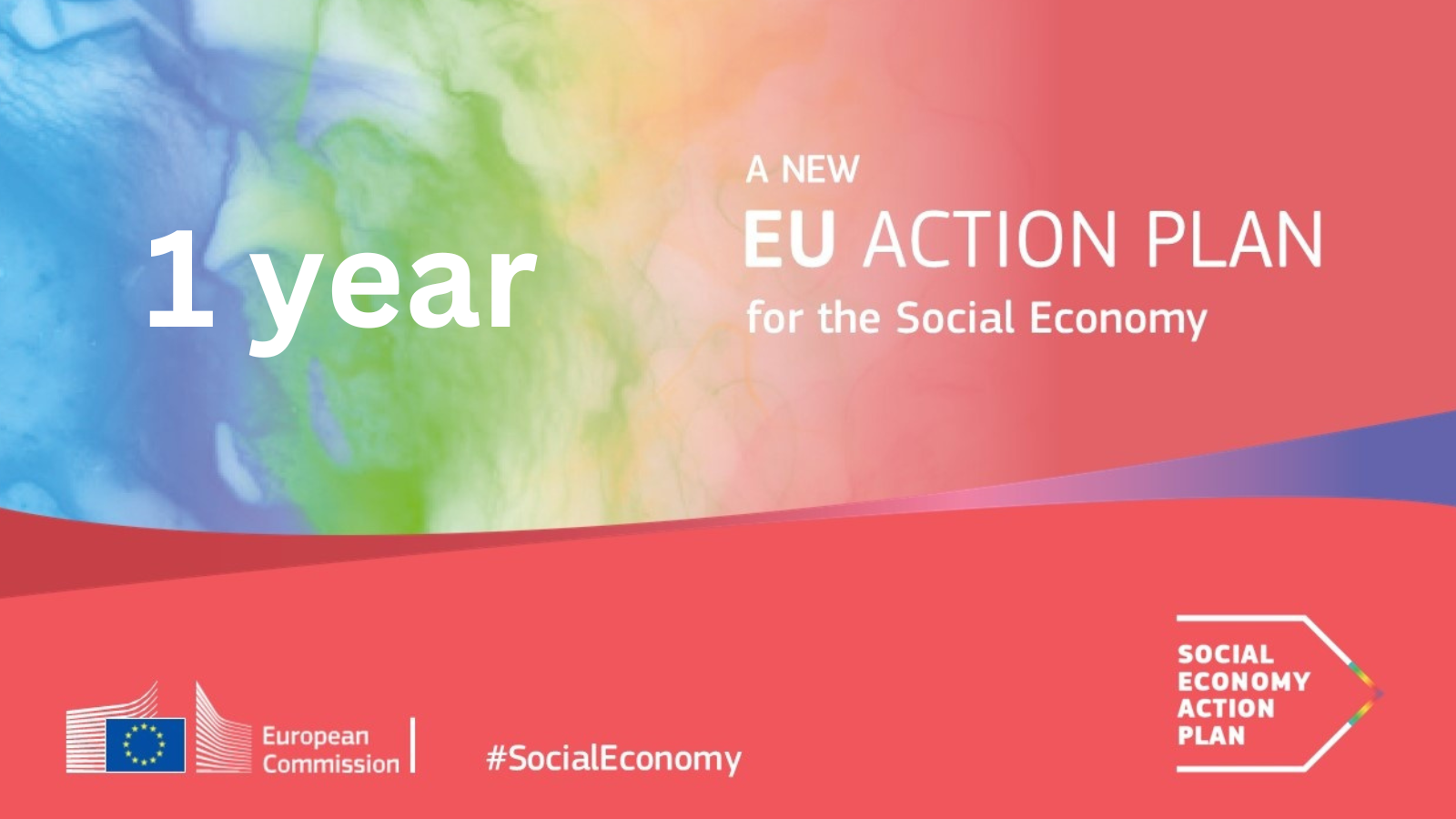
December 9, 2022, marked the 1-year anniversary of the Social Economy Action Plan (SEAP), a key EU document outlining EU policies in support of social economy. A celebratory event co-organized with the Social Economy intergroup at the European Parliament also marked the 10-year anniversary of Social Economy Europe, a pan-European organization of which CECOP is one of the members. Finally, end of 2022 saw 5 years since the European Pillar of Social Rights was adopted at the 2017 Gothenburg summit.
During his introductory speech at the event dedicated to the SEAP anniversary, Commissioner Nicolas Schmit highlighted the events that marked the first year of the SEAP, from its start in December 2021 in the wake of the COVID pandemic, to the current war in Ukraine and the resulting inflation and humanitarian crises. These crises push us to find new ways of how to organize our economies and tackle the disruption in the global economic system.
According to Commissioner Schmit, social economy is one of the solutions: “We need to learn the lessons from the past, and one of them is that we need very strong social economy.”
Some of the main EU actions for social economy, that took place in the past year, were the following:
- European Commission elaborated, with participation of stakeholders, and presented the pathway for green and digital transition of the social economy and proximity industrial ecosystem. This is an action plan for the Commission, EU Member States and stakeholders, which will attract EU funding and capacity-building – also for cooperatives. Read CECOP’s analysis here.
- While social economy has its own transition pathway, it also forms part of other transition pathways for other sectors. This has been recognized, for example, in the transition pathway for tourism, see here. CECOP has also been working on recognizing social economy in other transition pathways, such as the one on mobility (see here).
- European Commission organized the very first European Employment & Social Rights Forum, which is set to become a high-level annual event to keep social issues and social economy high on the EU’s agenda. Read about CECOP’s contribution to the event here.
- European Commission started working on the Social Economy Gateway – a comprehensive web platform that will provide information on different legal forms of social economy, support organizations such as cooperative federations in various EU Member States, and an easy-to-access guide to financing.
- European Parliament adopted its report on the Social Economy Action Plan, which specifically highlighted the role of cooperatives (in particular, worker cooperatives) and asked the Member States to create a favorable legal environment for cooperatives and to promote worker buyouts. Read more here.
- Work has been started on the Council Recommendations on developing framework conditions for social economy – read CECOP’s contribution to the European Commission’s consultation here. It is expected that the Commission will publish its proposal in the second quarter of 2023, and the Council might adopt the draft by the end of the year.
- Skills partnership for the Proximity & Social Economy ecosystem has been launched. This initiative is a commitment of stakeholders, including CECOP, under the EU Pact of Skills. Read more here.
Overall, there are signs that social economy is becoming mainstreamed in EU’s policies. For example, social economy and specifically cooperatives have been mentioned in the European Care Strategy package, European Parliament’s report on the draft Directive on improving working conditions in platform work, and the new Disability Employment Package.
EU institutions continued to work on implementation of the principles enshrined in the European Pillar of Social Rights – in particular, in what concerns ensuring decent working conditions to platform workers.
While much has been done, CECOP calls on the European institutions to keep the momentum and develop specific and measurable actions in support of social economy during the entire lifetime of the Social Economy Action Plan. In line with the inclusive approach of the SEAP, support must be available for all types of social economy entities, including coops in all sectors, also industry. Additionally, the Social Economy Action Plan should serve as a political opportunity to further mainstream social economy in various EU policies, given its cross-sectoral contribution.







 Employment & Social Inclusion
Employment & Social Inclusion  Entrepreneurship
Entrepreneurship Sustainable Growth
Sustainable Growth 

